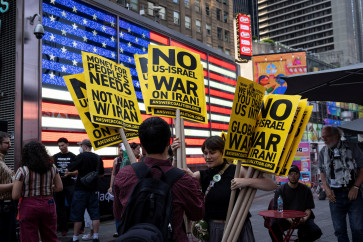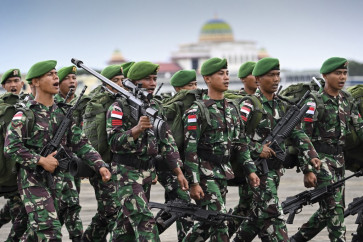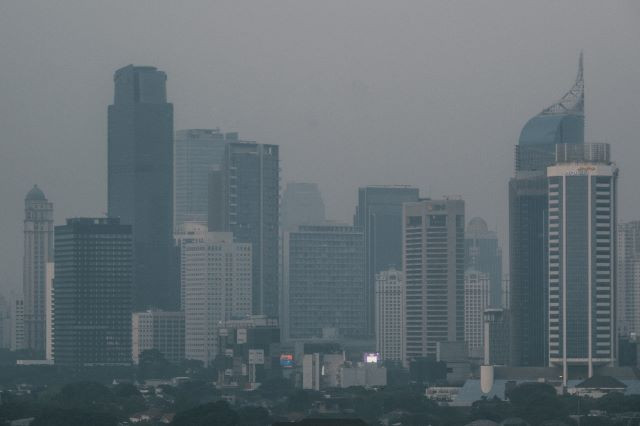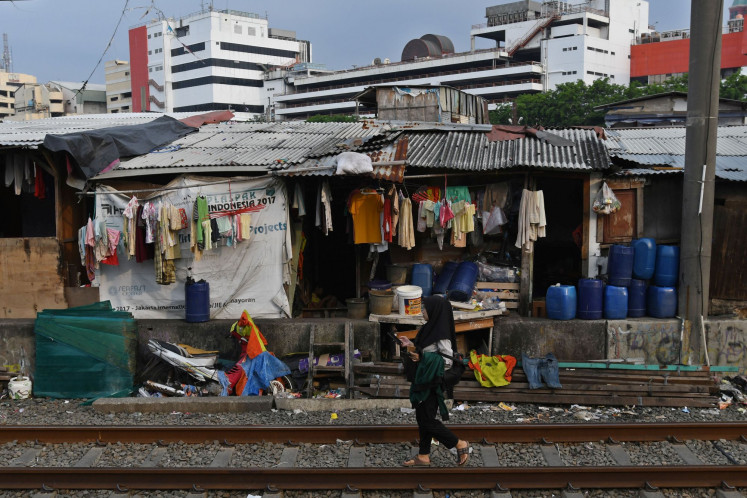Popular Reads
Top Results
Can't find what you're looking for?
View all search resultsPopular Reads
Top Results
Can't find what you're looking for?
View all search resultsʻToxic’ nationalism under scrutiny
Panelists offer different takes on how to recontextualize nationalism for the nation’s benefit.
Change text size
Gift Premium Articles
to Anyone
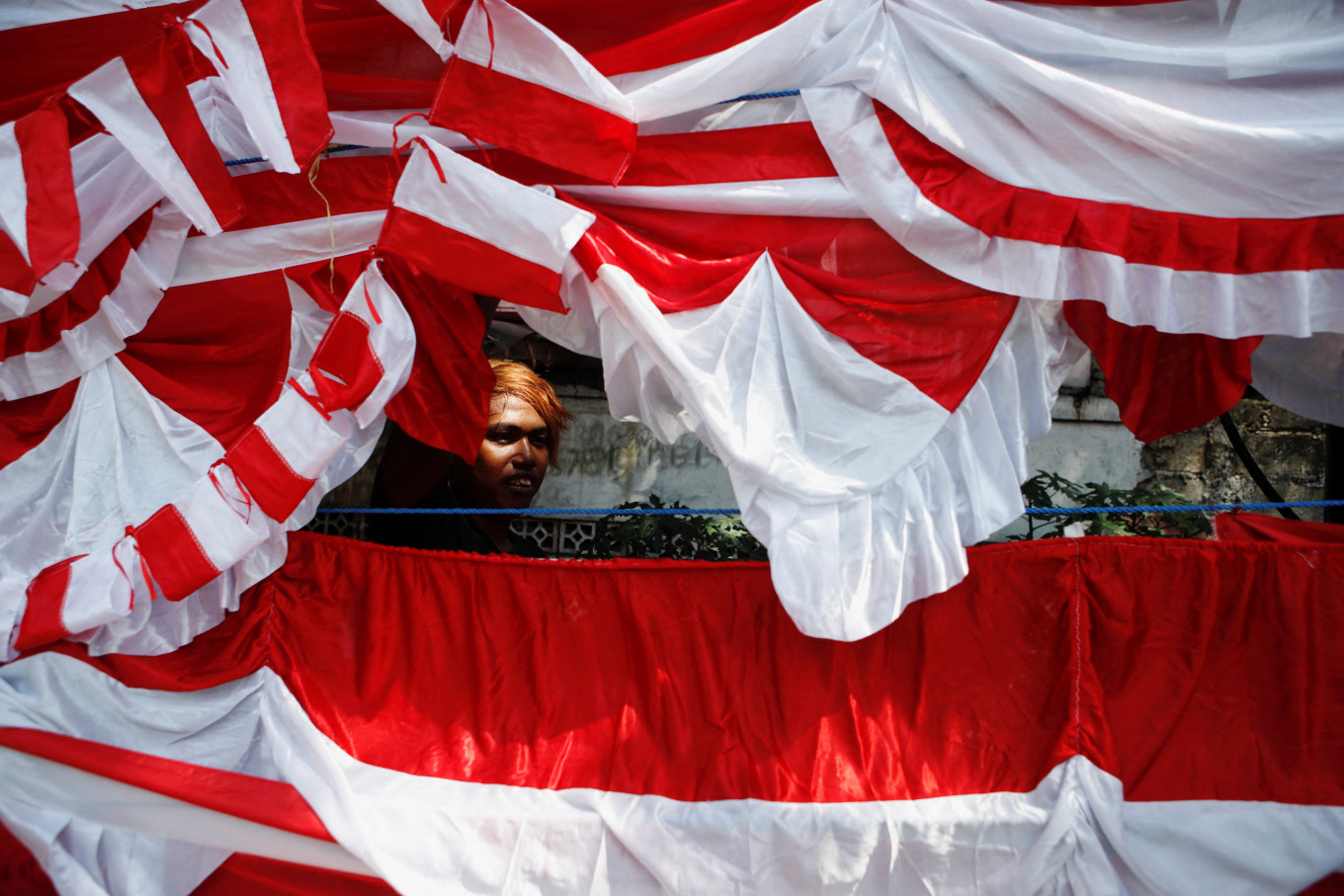
A
s Indonesia gears up for its celebration of 77 years of independence on Wednesday, the air has become thick with patriotism, and there is a seemingly unending display of red-and-white flags adorning every nook and cranny, accompanied by the chorusing of national songs in public spaces.
The uniform fanfare, as it were, stands almost in stark contrast to this diverse nation that is home to more than 800 different languages, 300 ethnicities and six recognized faiths.
The jubilee is all but unexpected. After all, Indonesia is the eighth most patriotic nation in the world, according to a 2022 poll from global survey company YouGov, with 14 percent of respondents answering positively to the statement that Indonesia was “the best country in the world”.
Indonesia has come a long way from being an “imagined political community”, as per the famous 1983 edict from historian Benedict Anderson, which painted the concept of nationalism in a largely positive light.
However, local professionals and researchers alike are growing increasingly worried that Indonesia’s nationalism has turned toxic, citing glaring instances of growing intolerance at a recent focused group discussion The Jakarta Post hosted in Central Jakarta. The work of defining a national identity and the boundaries of loving one’s country is thus unfinished, the panel said.
Melbourne University history PhD candidate Ravando Lie, the only panelist to tune in virtually to the discussion, defined toxic nationalism as a sentiment that, rather than uniting, divided people into categories. While the manifestation of this toxicity has been seen time and time again in the numerous tragedies that have befallen the country’s minority groups, the “destructive” sentiment has also more recently bled into Indonesia’s vast online spaces.
“When Indonesia was suspended from the All England Tennis Tournament [due to close contact with COVID-19], Indonesia’s netizens swarmed to harass the [organizer’s] profile so that it had to deactivate its account,” said Ravando.
This type of nationalism is far from logical, he said.
Philips J. Vermonte, dean of the School of Political Sciences at the Indonesian International Islamic University (UIII), said that while the nation’s founding fathers were unmistakably “rationalists” in their nationalism, the modern characteristics of loyalty to the country had lost touch with sensibility, reasoning and definition.
In turn, this opened more room for intolerance and a distorted lens of reality. “It affects our economic policies too. [...] In Malaysia, for example, anti-Americanism is on the rise, but their lawmakers are aware of the United States’ economic significance and are willing to defend their policies. It is not the same story here,” said Philips.
“When politicians are unwilling to defend their policies, spaces for intolerance are opened [wide]. Our education system needs to be more rationalist; it seems like we have lost our syncretization power.”
Anis Hidayah, head of the Center for Migration Studies at MigrantCARE, concurred with Philips, noting that a botched education of nationalism was the main culprit in Indonesia’s problem of intolerance.
“The education institutions of the country have solidified intolerance, and they have done so by the government’s omission,” she said.
Meanwhile, others believed that nationalism could prove more useful if it could serve the people who wield it.
That the main characteristic of Indonesia’s nationalism is emotional, and not rational in nature, is a problem that ought to be fixed, said Henry Manampiring, a senior executive of regional hospitality player RedDoorz.
True nationalism is not about who wears the most traditional clothes, or who proclaims loyalty the loudest, the brand’s regional vice president of marketing suggested, but about an action’s impact on the country’s welfare.
Nationalism has to be balanced out by rationale, he said, but it must also be profitable for the sake of national welfare.
“It is about the impact, not the origin. If a businessman is able to provide the best, most accessible product for the people of a country, regardless of which country the product comes from – that is a nationalist act,” Henry argued.
“What good does building a local company do if the business model exploits the locals working in it?”
Poltak Hotradero, a business development advisor at the Indonesia Stock Exchange (IDX), also insisted that nationalism must benefit economic development. He argued that since national borders were erected for tax purposes, nationalism should be the driving force for a collaborative and codependent free market. To close one’s borders for the sake of patriotism was thus erroneous.
“We can, as a nation, be nationalists, but all the while creating codependency. [...] If we are codependent, we cannot easily eliminate others. This is why I disagree with those promoting self-sufficiency,” said Poltak.
Most importantly, he added, Indonesia must be bold in revolutionizing its own conception of nationalism and values, lest it fails to resolve contemporary problems.
“At the core of things, we are a traditional and conservative society living in an increasingly urbanized world. We need to quickly decide, for example, is Pancasila open or closed for discussions?”
Questions similar to those posed by Poltak need to be answered sooner than later, since these “modern problems” are getting increasingly technocratic and scientific in nature, Philips added.
“There needs to be new ways of defining nationalism. Since 1998, nationalism has been too affiliated with democracy and decentralization. We are on the right track, but how would nationalism deal with issues like the climate crisis or the pandemic?” he said, noting that such issues were relevant to Indonesia’s continued welfare.
“Honesty is needed here. We ought to not sweep things under the carpet.”
Without honesty, and without these much-needed changes, there is no institution deserving of trust, said Usman Hamid, director of Amnesty International Indonesia. He maintained that nationalism had served nothing but to perpetuate human rights abuses via a “melancholic” glorification of the collective good.
“Nationalism has caused many acts of abuse for the sake of the majority, as seen in the case of the Rohingya refugees in Myanmar. This concept should be discarded entirely,” he said.


